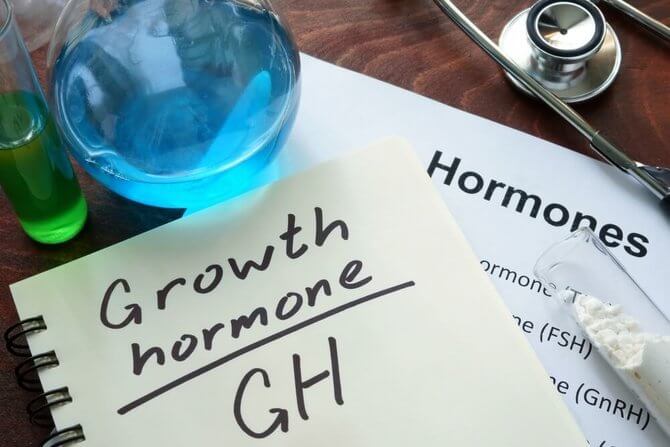HGH Boosts Immunity

The immune system is a complicated network of brain functions, hormones, organs, lymph nodes, cells, and glands all working together to keep you healthy. One cog in the process that is out of balance or alignment can lead to illness throughout the body. What many people do not realize is how HGH boosts immunity in many stages of this network.
The skin is a primary way that HGH contributes to maintaining a healthy immune system. Your skin protects your body from invading organisms such as germs and viruses. As you age, your skin layers become thinner, making them an easy target for tears and damage. Thinning skin is a sign of human growth hormone deficiency as shown below:
- HGH signals the liver to secrete insulin growth factor 1 (IGF-1)
- IGF-1 and HGH stimulate cell regeneration
- Improved cell production restores healthy elastin and collagen levels
- Increased collagen and elastin thicken and firm the skin to protect against invading microbes and bacteria
That is the first step in answering the question of how does HGH boost the immune system.
HGH and Immune Health
Next, we look to a different form of cell reproduction – this time for B and T cells that increase immunoglobulin formation. HGH aids in the maturation of critical myeloid progenitor cells (precursors to platelets, red blood cells, granulocytes, and more. B and T lymphocytes attack targeted antigens that enter the body through the skin or oral or nasal passages.
Another way that HGH boosts immunity is by enhancing thymus function. The thymus gland produces infection-fighting T-cells. That is one of the reasons why HGH has shown to be a powerful aid to HIV-infected adults with weakened immune systems. The thymus gland shrinks with age, and HGH can help stimulate its growth the same way it does with all internal organs.
The use of HGH to boost immune system functions is a crucial reminder of how maintaining proper hormonal balance helps the body at any age. Research out of the University of New Mexico School of Medicine showed that growth hormone deficiency contributes to the activity of natural killer (NK) immune cells. NK cells attack cancer cells, which may be why cancer risks increase with age along with HGH decline.
That does not mean, however, that one can use HGH to treat cancer. There is a concern that HGH cell regeneration effects could lead to cancer growth. That is why hormone specialists wait until after cancer treatment ends and remission begins to start HGH therapy.
HGH, Stress, and Healing
No discussion about how does HGH boost your immune system would be complete without bringing up stress. When you are under stress, your body increases the secretion of cortisol into the bloodstream. Cortisol directly inhibits HGH production, lowering growth hormone levels and preventing it from doing its job. Since HGH helps promote sleep, and cortisol prevents it, your energy levels decline. You become weak, and your body is unable to fight off invading germs and bacteria as it normally would.
Increasing HGH levels allows the body to lower cortisol levels, improving sleep and emotional well-being. As HGH circulates in the bloodstream, it binds to the many growth hormone receptors in the brain and on tissues to stimulate cell regeneration and improve immune functions.
Increased cell production allows the body to heal faster by rushing crucial B and T cells to areas of illness or injury. Studies of how HGH boosts immunity have shown benefits for bone fracture healing, as well as for burn wounds.
839GYLCCC1992



Leave a Reply